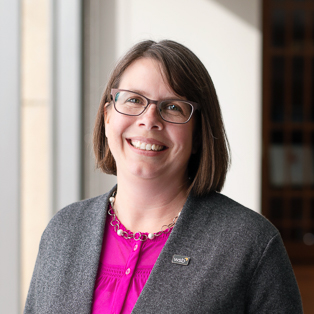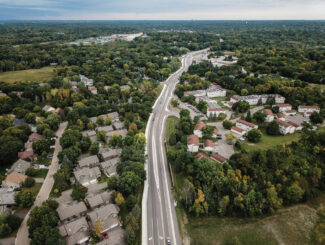May 15, 2023
By Andi Moffatt, Vice President of Environmental, WSB
WSB understands the importance of creating and maintaining healthy environments for residents and wildlife. While “No Mow May” is a well-intentioned campaign to improve the pollinator population, there are some more effective ways to protect natural habitats that cities and residents should be aware of and consider. There are several drawbacks that cities and residents should be aware of.
There are some pitfalls of “No Mow May” and several alternatives to protect pollinators:
- The research study that was the driving force behind the No Mow May was actually redacted because of inaccurate information about its effectiveness in attracting and protecting bees. Therefore, the effectiveness of this campaign on pollinators needs to be investigated.
- Not mowing the lawn may also create more trouble for the natural habitat by the growth of Kentucky Blue grass weeds, which are undesirable for healthy, thriving lawns.
- Residents participating in No Mow May may create a few headaches for neighbors and cities if they continue the no-mow theme into June. Not mowing the lawn throughout the summer could result in breeding grounds for mosquitoes, complaints from other residents in the neighborhood, and fines from the city for ordinance violations.
- Instead of participating in No Mow May, cities should educate the public on appropriately re-landscaping their yards to be more pollinator-friendly. Planting flowers and other plants that are native to the region in gardens or open spaces attract native bees and pollinator species to the area.
- Cities should encourage the reduction of chemical products on residents’ lawns. Overusing chemicals on lawns can kill off beneficial insects, contaminate soil and water, reduce food sources for pollinators, and increase susceptibility to disease.
- Use a public awareness campaign to remind residents of the enforcement of ordinances and communicate the facts versus myths of No Mow May. Additionally, ensure that city staff in publicly facing customer service roles are prepared to share this with residents who may inquire.
Cities and residents who want to do more to support their local habitats should learn about the many ways to help and be aware of catchy tactics that might actually do more harm than good. With sustainability as a core tenet of WSB’s work, WSB helps cities incorporate native landscapes into public spaces that cut down on maintenance costs and help the environment.
Andi is a Vice President with experience leading people and projects that include planning, environmental, energy, highway, natural resources, construction and development. She oversees our Environmental services and approaches her work with passion and positivity.
[email protected]m | 763.287.7196


